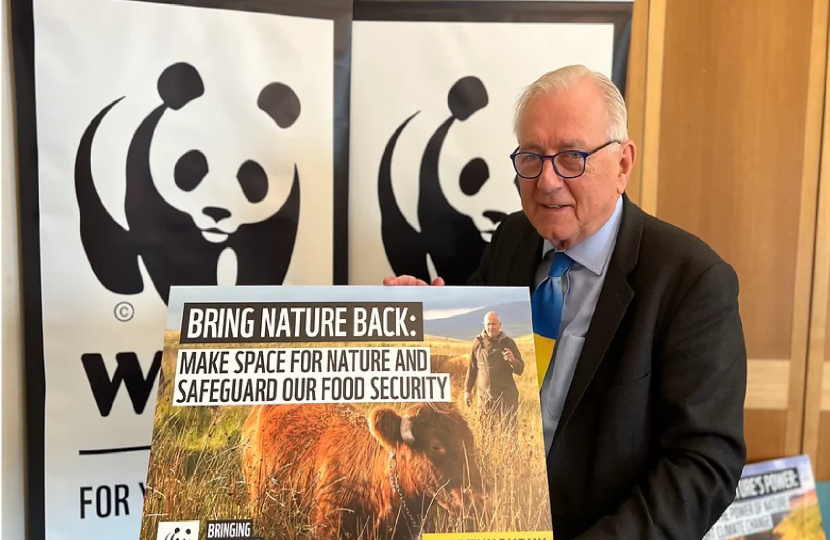
On Sunday we attended the evening service at Westminster Abbey. After thanking Dean David Hoyle, we went down the new step-free gentle slope that makes access easy for people who find steps a barrier.
Building-in mobility and overcoming or eliminating obstacles is overdue. One of the articles I commend in this week’s House Magazine – www.politicshome.com/thehouse - is the tribute by the great athlete Baroness Tanni Grey-Thompson about her late colleague, fellow wheelchair user Baroness Sue Masham. Each was a distinguished Olympian. Sue won medals in swimming and table tennis; Tanni gained eleven gold medals and won the London marathon six times.
Sue navigated the world of politics and disability rights ‘in a kind and gentle manner but with a steely strength’. Her notable sentence was: ‘What are we going to do about it?’ it was her way of challenging us all to do more and to do better. Tanni concluded with her positive belief things could and should be better – and the only way that can happen is by working hard every day.
Changing the name can be helpful. Once there was DPTAC, the disabled person transport advisory committee; it was really the Mobility Committee. In Northern Ireland the Inclusive Mobility and Transport Advisory Committee combines transport professionals with key users. It advises on issues that help the mobility of deaf and disabled people and older people. We know action also benefits those travelling with babies or with baggage.
This week I was at two meetings in the House of Lords. The 12 Step Recovery group are glad Worthing this year held one of their first constituency meetings in the Guildbourne Centre. People suffering with addictions of any kind, and their affected family members, can help themselves and can find help with the right signposting.
Another was about the Holocaust Memorial Bill, proposed in Victoria Tower Gardens alongside the Buxton Memorial that commemorates campaigners against the slave trade and then against slavery itself. Shamefully, compensation was given to slave owners, not to the humans held in slavery.
On Wednesday, I met Ben Lindsay, founder and chief executive of the charity Power The Fight UK. His practical charity tackles violence affecting young people and other victims of violence, with long-term solutions for sustainable change, and being a link between the community and policy makers.
Thirty years ago I was MP where Stephen Lawrence lived and died. He and his siblings were brought up with purposeful after-school activity. His attackers had parents who failed to guide their own children.
Ben makes the sensible point that the afternoon hours from 4 to 6 are times when children and young people can be best occupied with interesting activities. He notices that there are churches and other places of congregation that are closed then. He knows and we know organising groups requires volunteers and funding.
We care for people, we care for animals and birds and for our environment locally, nationally and around the world. Soon I will be meeting and listening to our Imam and our Rabbi. With leaders and teachers of other faiths, they serve to help us all do more together with understanding and respect: peacebuilders.
Every week including the Easter weekend in the constituency, I observe the need for good cause campaigning and I give my support to those who care as volunteers and as professionals. Food kitchens and animal welfare centres do not run themselves.
There has been violence locally. Victims ask for change for the better. In addition to greater information about offenders, there is need for earlier, effective intervention. Aid, much more, is needed to reduce the injustice suffered by victims. Police and youth justice workers would much prefer to cut offending and to reduce the length of time that offending happens. Prevent, cure, care: as in most fields, we must listen to those who suffer.



